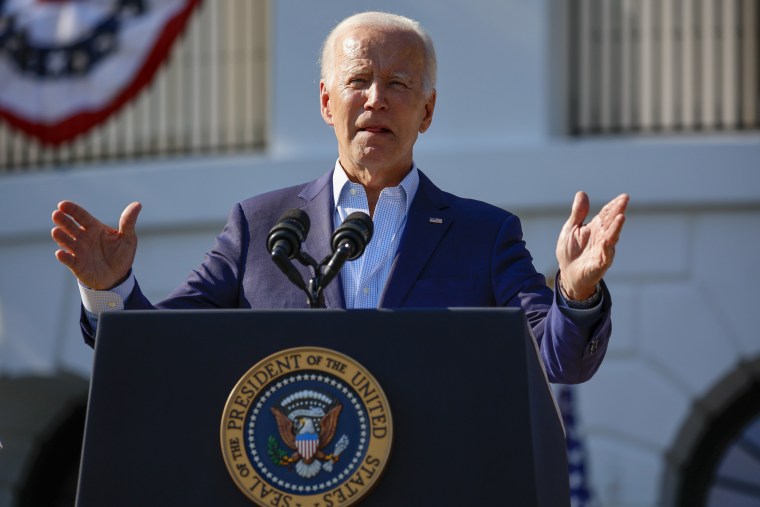In the aftermath of yesterday’s mass shooting at a July Fourth parade in Highland Park, Ill., President Joe Biden issued a written statement that briefly alluded to the prospect of additional policymaking.
“I recently signed the first major bipartisan gun reform legislation in almost thirty years into law, which includes actions that will save lives. But there is much more work to do, and I’m not going to give up fighting the epidemic of gun violence.”
The Democrat made related comments at a White House gathering to celebrate Independence Day with military families, saying the county has “more work to do” on addressing violence.
“Six people have passed and others are wounded, but we’ve got a lot more work to do. We’ve got to get this under control,” Biden said. He then repeated, “We’ve got to get this under control.”
That’s a reasonable and understandable reaction. It’s also one much of the public is likely to agree with. The question, however, is whether “a lot more work” is politically possible.
At first blush, some are likely to see an open door. After all, in the wake of two deadly mass shootings in May — at a Buffalo grocery store and a Texas elementary school — Democrats and Republicans reached a compromise on a package of reforms that passed with relative ease. It was a meaningful breakthrough, despite being narrow in scope: It had been nearly three decades since Congress advanced legislation to address gun violence.
Some saw it as the start of a new governing phase. The Washington Post’s editorial board, for example, wrote two weeks ago, “The public sentiment for gun safety that has steadily built with each mass shooting, finally forcing Republicans to drop their ironclad opposition, offers hope that the legislation ... will be the first and not last step in bringing some rationality to the nation’s gun laws.”
GOP officials clearly don’t see it this way. HuffPost noted:
Most Republicans, however, are suggesting this is a one-off measure that will take broader gun control measures, such as universal background checks or an assault weapons ban, off the table. “Democrats are counting on this having changed the attitude toward guns — that’s probably not the case,” Utah Sen. Mitt Romney told HuffPost.
To oversimplify matters a bit, there are two competing questions. On the one hand, we see many Democrats effectively asking, “If we passed one bill to help save Americans’ lives, why can’t we pass another?”
And on the other hand, we also see many Republicans effectively asking, “We just passed a bill to help save Americans’ lives, so why should we pass another?”
Indeed, let’s not forget that the recently passed Bipartisan Safer Communities Act was a worthwhile effort that Republican lawmakers on Capitol Hill wanted no part of: In the Senate, 70 percent of GOP members opposed this modest, narrowly focused, bipartisan bill, and in the House, 93 percent of GOP members also opposed it.
For them, the idea of building on this foundation is absurd.
Biden’s not wrong; there is “much more work to do.” But that doesn’t mean it’s likely to get done anytime soon.

